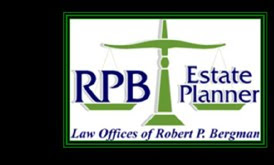As we push our way through Tax Month, we are reminded of the importance of the basics of estate planning. My estate planning colleague in Hawaii, Scott Makuakane, recently posted the following article to revisit three areas we should avoid in estate planning. His article reflects the practical experience that comes his practicing estate planning and trust law in Hawaii since 1983.
Three Classic Estate Planning Blunders
Too often, estate plans fail. Here are the three most common reasons.
1. FAILURE TO PLAN. You have heard that failing to plan is planning to fail, and it is true. People procrastinate with their estate plans for a variety of reasons, one of them being the refusal of some of us to accept our own mortality. Not to rub it in, but passing into the Great Beyond is not an “if,” but a “when.” It will make a tremendous difference to your loved ones, your pets, and your favorite charities, if you have made a plan for what happens to your stuff (everything you own) when you assume room temperature.
Your estate plan should also take into the account the possibility of your becoming incapacitated someday. This is an issue that has become more and more important as advances in medical science have made it possible for us to live longer lives. Unfortunately, medical science is still working hard to find the causes, and come up with solutions, to the various forms of dementia. Although we live longer today than in years past, a growing number of us ends up needing long-term care. It is absolutely critical to plan for how you and your loved ones will deal with the issues of long-term care, not the least of those issues being how you will pay for it.
2. FAILURE TO IMPLEMENT. Having a plan is great, but failing to implement your plan renders it all but worthless. One of the primary ways people fail to implement their plans is to neglect to transfer their assets into the right “buckets.” If you have a revocable living trust, it should probably hold most, if not all, of your assets. Yet many people die with assets in their own names, which, in turn, results in costly and time-consuming probate proceedings that could easily have been avoided with some simple asset transfers.
3. FAILURE TO UPDATE. Once you have set your course with your estate plan, you have to remember that even the best of plans will require course corrections. Your health will change. Your stuff will change. The law will change. The list of people you like and trust will change. It is important for your estate plan to change so you can be sure that it will work as intended. The best way to do this is through a regular discipline of reviewing your estate plan and updating it when necessary.
I’m here to help you avoid all three of these “blunder” traps. If I can help, please contact me or leave a “comment” on this blog post. As a trained estate planning professional, my goal is to guide and support you through the estate planning process.





